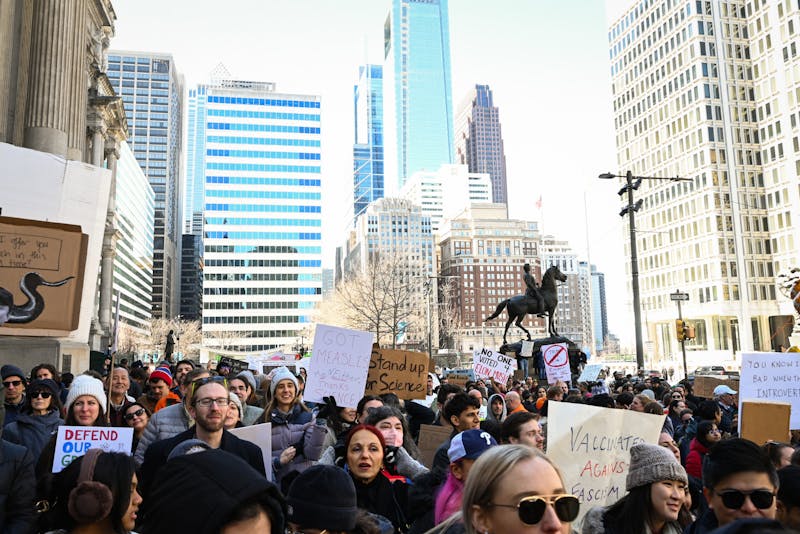“I can’t overemphasize how little influence this [song] had when it came out.”
Journalist and author Alan Light of “The Holy or the Broken: Leonard Cohen, Jeff Buckley and the Unlikely Ascent of ‘Hallelujah’” t alked about Leonard Cohen’s popular single “Hallelujah” Thursday evening at the Kelly Writers House.
According to Light, “Hallelujah” was initially rejected by record labels. Cohen’s version of the song includes him speak-singing the words and during the refrain, a chorus appears on a balcony to accompany him.
The instrumentation includes “a weird 80s synthesizer and vocal chorus,” Light said, “and Leonard doing his Leonard thing.”
Cohen wrote more than 70 verses, Light said, and when the song struggled for recognition he continued to rearrange it.
It took a different performer and different arrangement for the song to gain popularity. Singer and songwriter Jeff Buckley discovered a version of the song by John Cale on a Cohen tribute album.
“Leonard penned it, but Jeff owned it,” Light wrote of the song in his book. Light played Buckley’s version for the audience. Each time a version of the song came on, the audience was entranced by the music — some people even quietly mouthed the words.
Only after Buckley’s death did “Hallelujah” rise to fame. “The song became his own epitaph,” Light said.
At this point, the song became a musical force and could be heard everywhere — movies, TV shows, covers by various artists, weddings, funerals and religious services, according to Light.
VH1 played “Hallelujah” in a 9/11 video and the song “became this shared mourning anthem for everyone,” Light said.
The song evokes spiritual and painful feelings, according to Light. It possesses a certain ambiguity, allowing people to listen to it during times of either struggle or joy, making the song resonate in any situation.
Light said that what he enjoyed most during his study of the song was learning how it affected ordinary people. “Everyone has some story or connection, where they needed a feeling,” he said, “and this is what they turned to.” That is what music can do, he added.
Before Light ended his portion of the evening, he concluded with a quote by Cohen from his book. “When one looks at the world, there’s only one thing to say and it’s ‘Hallelujah,’” Cohen said. “That’s the way it is.”
The Daily Pennsylvanian is an independent, student-run newspaper. Please consider making a donation to support the coverage that shapes the University. Your generosity ensures a future of strong journalism at Penn.
DonatePlease note All comments are eligible for publication in The Daily Pennsylvanian.







